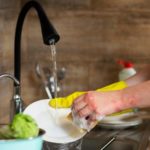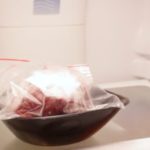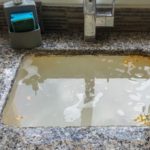Many people often use hot water to clean greasy pans. Hot water helps to remove the layer of grease on the pan, making the cleaning process easier and faster. However, experts advise against using this method to clean greasy pans.
Why shouldn’t you clean greasy pans with hot water?
One of the reasons we shouldn’t clean greasy pans with hot water is because the hot water will cause the grease to melt and flow down the drain, but then they will cool and solidify in the pipes. Over time, the pipes will accumulate a thick layer of hardened grease, causing blockage in the drain pipes.
According to The Kitchn, Doyle James, President of Mr. Rooter Plumbing, says, “Cold water is actually a better choice when it comes to cleaning grease or fat residue on your cooking utensils.”
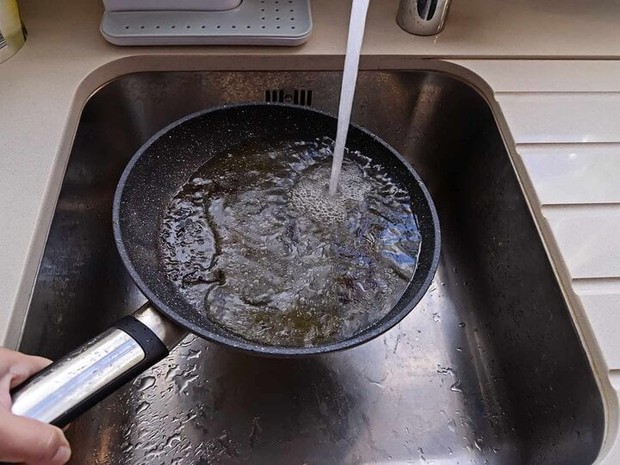
Do you know why you shouldn’t clean greasy pans with hot water? (Photo: Allrecipes)
If hot water melts the grease and fat residue and then solidifies, coating the pipes, cold water does the opposite, it keeps the grease in a solid form, causing them to flow away, without causing clogs. “When fat, oil, and grease come into contact with cold water, they quickly solidify, and the water and gravity will wash them away,” James said.
While using cold water to clean pans filled with greasy residue is better than using hot water, plumbing experts advise against pouring any type of grease down the drain if you can avoid it. This helps you avoid serious blockages in the drain pipes.
“Too much accumulated grease can quickly overload the water treatment system. Therefore, the more fat you remove, the better, wipe it clean before washing it with soap and water or putting it in the dishwasher. You can use paper towels or an old cloth to wipe off excess grease and throw it in the trash. This prevents grease from flowing into the drain,” James said.
A small amount of grease or cooking oil may not seem like a big issue. But in the long run, many small pieces of grease can accumulate into a large mass that cannot move through the drain pipes. This will require you to spend money to hire someone to clear the drain.
Therefore, don’t forget to wipe off excess grease in the pan before washing it with cold water and using plenty of dishwashing liquid to limit the amount of oil waste going into the drain pipes, reducing the chance of grease sticking to the surface of the wastewater pipes.
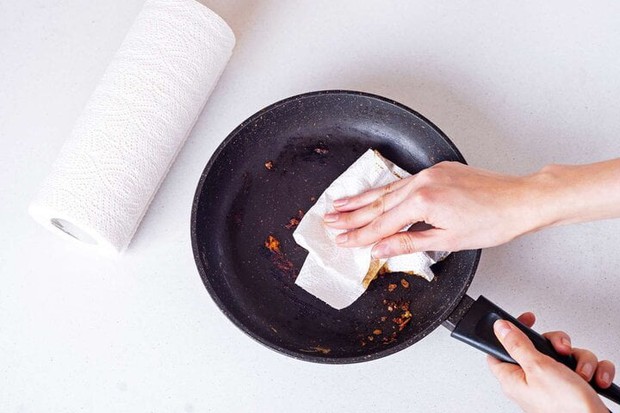
You should wipe off excess grease in the pan before washing with cold water. (Photo: The Spruce)
Another reason why you shouldn’t clean greasy pans with hot water is that it can shorten the lifespan of the pan. If you immediately switch from washing the pan with hot water to rinsing it with cold water, the thermal shock can cause the pan to warp and crack. The bottom surface of the pan will also have “hot and cold spots,” uneven heat transfer, making the food not tasty, and unevenly cooked.
Methods to clean heavily greased pans
– Pour vinegar into the pan and bring it to a boil. Immediately, the grease stains will separate, and you can easily clean them with dishwashing liquid.
– Cut a slice of lemon, sprinkle some salt on the surface of the lemon slice, and use it to scrub the entire surface of the pan. Then, simply wipe the pan gently with a paper towel and wash it with dishwashing liquid. Note: This method should not be used on pans with a non-stick coating as the abrasion from the lemon and salt can cause the non-stick layer to peel off.
– If you have baking soda at home, this is a powerful helper to remove grease from the pan. Put baking soda and water into the pan and soak it for about 20 minutes. Then, use a dishwashing brush to scrub the pan clean, and all the grease stains on the pan will disappear.




























